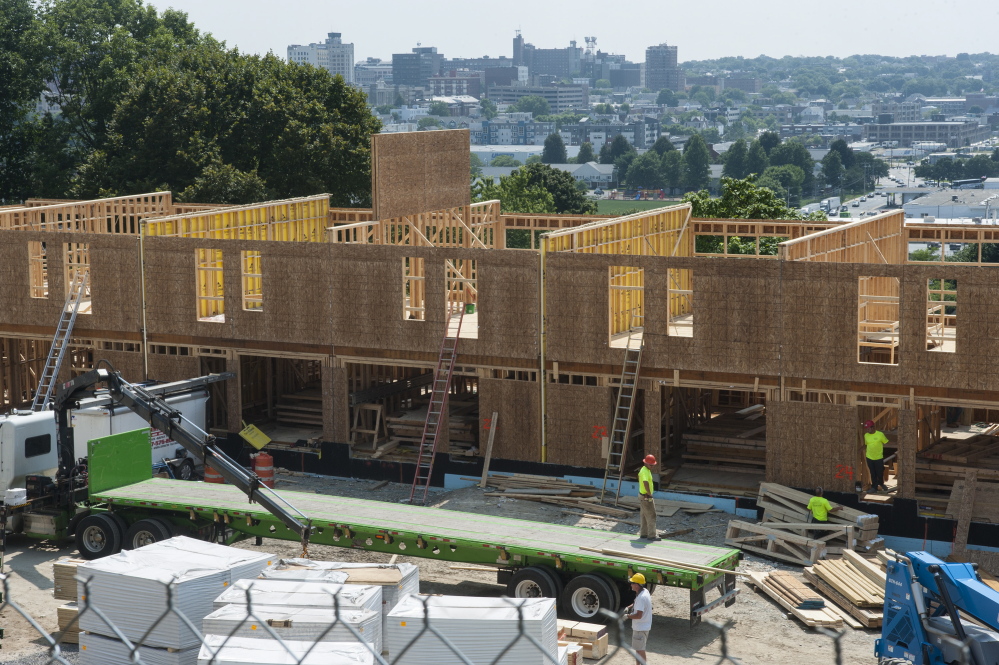The great illusion of living in a historic city like Portland is that change can be avoided.
But just because we have some stately brick buildings and some twisty narrow streets doesn’t mean that time stands still here. Portland is not the city it was 20 years ago, and in another 20 years, it won’t be the city we live in today. Change can’t be stopped – the best you can hope is to steer it.
That is the frame for looking at proposals that will be considered next week by the City Council’s Housing and Community Development Committee.
The committee has taken on one of the city’s most persistent current problems: There isn’t enough housing for the people who want to live here, and competition for what exists is driving up prices, putting Portland out of reach for newcomers and longtime residents alike.
NOT GENTRIFICATION
This process is sometimes derided as “gentrification,” but it’s not a problem caused by well-off newcomers. The current situation was created by well-intentioned Portlanders who, in the past, thought they could keep the city from changing by passing zoning ordinances that limited growth. They were able to stop new buildings from sprouting up, but the result was a manufactured scarcity that is changing the character of the city by making it unaffordable for middle-income families.
The housing committee is proposing zoning changes that would blunt those trends.
The first set of proposals would change the lot size and setback requirements in the East End and West End neighborhoods, opening up hundreds of small lots to development. This would be accomplished by “legalizing” the city’s most cherished neighborhoods, which were built in the 19th century but could never be constructed today under current ordinances. Adding new houses in these hot real estate markets would take some of the pressure off the competition for existing apartments.
Another set of recommendations would create living opportunities in the business zones, largely by relaxing or removing parking requirements. Upper floors of commercial buildings could be desirable places to live, and residents could use the same parking spaces at night that businesses use in the day. Demanding that every downtown living unit have its own parking makes these kinds of uses prohibitively expensive.
AFFORDABLE RENTS
The third proposal would be to require new housing developments of 10 or more units to set aside some apartments that are affordable to people of median income for the region (about $60,000). Alternatively, the developer could pay into a fund that would be used to develop affordable housing at another site.
These proposals all welcome change in a way that would preserve an economically diverse city, one in which people at all points along the income spectrum have a place. Working people and those in the middle class need housing that is becoming too expensive in the current system.
The housing committee is on the right track. Portland can’t stop change, but it can steer it in the right direction.
Copy the Story LinkSend questions/comments to the editors.



Success. Please wait for the page to reload. If the page does not reload within 5 seconds, please refresh the page.
Enter your email and password to access comments.
Hi, to comment on stories you must . This profile is in addition to your subscription and website login.
Already have a commenting profile? .
Invalid username/password.
Please check your email to confirm and complete your registration.
Only subscribers are eligible to post comments. Please subscribe or login first for digital access. Here’s why.
Use the form below to reset your password. When you've submitted your account email, we will send an email with a reset code.